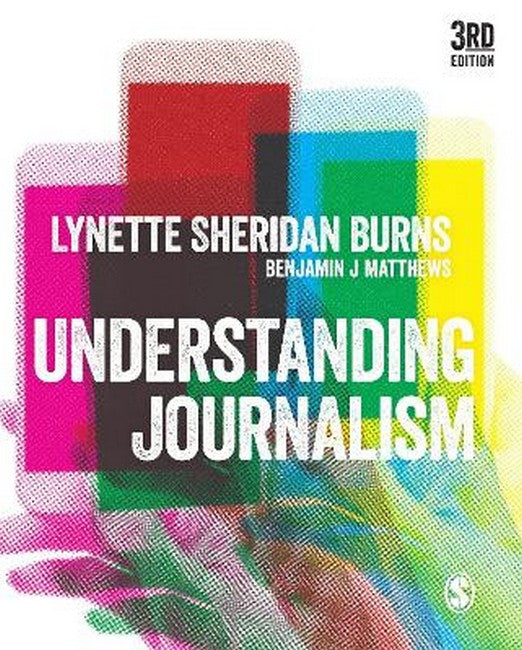Lynette Sheridan Burns has been a journalist for 25 years first in Sydney, then regional new South Wales, where she won three consecutive journalism awards. In 1989 she moved to the University of Newcastle, Australia, where she established its journalism program in 1992. Today she combines teaching with freelance journalism and award-wining research into problem-based curriculum design.
Request Academic Copy
Please copy the ISBN for submitting review copy form
Description
PART 1 FROM KNOWING HOW TO BEING ABLE Chapter 1 Introduction Chapter 2 Who is a Journalist? Chapter 3 Journalism as Decision Making PART 2 JOURNALISM IN ACTION Chapter 4 Finding Stories Chapter 5 Choosing Stories Chapter 6 Researching Stories Chapter 7 Researching Stories: Interviews Chapter 8 Researching Stories: Data Chapter 9 Telling Stories Chapter 10 Editing Stories Chapter 11 Long-form stories
This 3rd edition of the classic text on understanding, thinking about and practising journalism hones the argument that, amid the chatter, reflective and ethical journalists are the upholders of journalism's purpose in a rapidly transforming media environment. Understanding Journalism brings theory and practice together to provide a richly informed, scholarly, accessible, engaging and practical step-by-step guide to the decision making process that is public interest journalism. All journalism students and journalists should read and learn from it. -- Bonita Mason Understanding Journalism is an injunction and a guide to students, journalists and others to think about journalism - what is is, how it is done, and what it means - at time when it has never been more important to do so. -- Michael Bromley Sheridan Burns was among the first to apply a genuine 'reflective practice' approach to journalism education - teaching students how to report effectively within ethical boundaries. The latest edition of Understanding Journalism - co-written with Benjamin J Matthews - retains that mindful approach to the enterprise and applies it to a host of fresh situations - including social media, false news and citizen journalism - in the digital and geopolitical context. The authors reaffirm the importance of considered and research-based journalism practice in a troubled and divided world. This book continues to set the standard as the truly international primer for journalists. -- Mark Pearson

